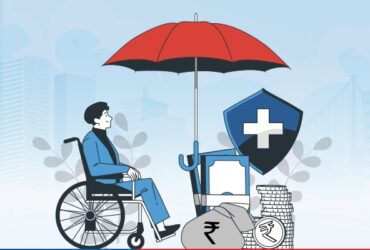Experiencing a car accident can be a jarring and distressing event. It’s crucial to grasp your rights during this challenging time. Expert legal advice from seasoned attorneys specializing in car accident cases provides invaluable insights into safeguarding your rights and navigating the aftermath effectively.
1. Seek Medical Attention
Immediately after an accident, prioritize your health. Even seemingly minor injuries could have underlying complications. Seeking medical attention not only ensures your well-being but also establishes a crucial record of injuries linked to the accident, which strengthens any future claims.
Ensuring thorough medical assessment, preferably under the guidance of a car accident lawyer, helps in diagnosing hidden injuries like whiplash or internal trauma, often not immediately apparent. Such documentation becomes pivotal in seeking compensation for medical expenses or loss of income due to injuries.
Delaying medical attention might not only exacerbate injuries but could also weaken your case, as insurance companies might question the severity or cause of injuries if not promptly addressed.
2. Preserve Evidence
The importance of evidence preservation cannot be overstated. Capture the accident scene comprehensively by taking photographs or videos of the vehicles involved, the positioning of the cars, visible injuries, road conditions, traffic signs, and any contributing factors like weather or poor lighting.
Additionally, gather contact information from witnesses present at the scene. Witness statements can significantly strengthen your case by providing independent verification of events.
Preserving evidence includes keeping all medical records, receipts for medical expenses, and documenting any emotional distress or changes in daily life due to injuries sustained in the accident.
3. Contact Law Enforcement
Informing the police about the accident is crucial, especially for legal documentation purposes. A police report provides an official record of the incident, detailing the circumstances, parties involved, and any citations issued.
Additionally, police reports often contain information about the at-fault party, their insurance details, and statements from witnesses or involved parties, offering valuable evidence for insurance claims or legal proceedings.
However, if law enforcement does not arrive at the scene, consider filing an accident report at the nearest police station or with the Department of Motor Vehicles, as per state regulations.
4. Exchange Information
Communicating and exchanging pertinent information with other involved parties is essential. Exchange names, contact details, insurance information, and vehicle registration numbers.
Moreover, avoid discussing the details of the accident beyond factual information. Avoid admitting fault or placing blame, as these statements might be misconstrued or used against you during legal proceedings.
5. Be Cautious in Conversation
Exercise caution in conversations following an accident, especially with the other parties involved or representatives from insurance companies. Refrain from admitting fault or making apologies, as these could be interpreted as an admission of liability.
Additionally, avoid speculating about the cause or sequence of events leading to the accident. Stick to providing factual information while avoiding discussions about fault determination.
6. Notify Your Insurance Company
Informing your insurance company about the accident is a necessary step in initiating the claims process. Provide accurate and factual information without assuming blame or accepting fault.
Cooperate with your insurance company during the investigation and claims process. However, refrain from agreeing to recorded statements without consulting legal counsel, as these statements might be used against you later.
7. Consult Legal Counsel
Seeking guidance from a legal professional specializing in car accident cases can significantly impact the outcome of your claim. A seasoned attorney can provide personalized advice, assess the strength of your case, and offer representation when dealing with insurance companies or pursuing legal action. Explore here for experienced attorneys who understand the intricacies of car accident cases and can safeguard your rights effectively.
An attorney can navigate complex legal processes, handle negotiations, and ensure that your rights are protected throughout the proceedings. They understand the intricacies of personal injury law, including statutes of limitations, liability, and potential compensations available.
8. Be Mindful of Deadlines
Each state has specific statutes of limitations governing the time frame within which legal action must be initiated after an accident. These deadlines vary and can significantly impact your ability to seek compensation.
Being aware of and adhering to these deadlines is crucial to protect your rights. Missing these deadlines might result in forfeiting the opportunity to pursue legal action or claim compensation for damages.
9. Understand Your Insurance Coverage
Reviewing your insurance policy in detail is essential to understand the coverage available to you. Familiarize yourself with the types of coverage, deductibles, and limits within your policy.
Understanding your insurance coverage helps in making informed decisions about filing claims, especially concerning medical expenses, property damage, and liability limits. Consider discussing your policy with your insurance agent or legal counsel for better clarity.
10. Document Medical Treatment
Maintaining a detailed record of all medical treatments and expenses incurred post-accident is crucial. Keep records of doctor visits, hospital stays, prescribed medications, therapies, and rehabilitation sessions.
Such documentation not only helps in accurately calculating medical expenses but also serves as evidence of the extent of injuries sustained and the associated costs. This documentation becomes instrumental in seeking compensation for medical bills and ongoing treatments.
11. Consider Settlement Offers Carefully
In the aftermath of an accident, the at-fault party’s insurance company might offer a settlement to resolve the claim. Carefully evaluate any settlement offer presented to you.
Review the terms and ensure that it adequately covers all damages, including medical expenses, property damage, lost wages, and future expenses related to the accident. Consulting with your attorney before accepting any settlement offer is advisable to ensure it aligns with your best interests.
12. Know When to Pursue Legal Action
Despite efforts to negotiate or settle, sometimes an amicable resolution isn’t achievable. If the offered settlements fail to adequately address your losses, pursuing legal action might become necessary.
Consulting attorneys can help assess the viability of legal action. They can guide you on the potential outcomes, costs, and steps involved in pursuing a lawsuit, empowering you to make informed decisions regarding your case.
Conclusion
Navigating the aftermath of a car accident involves understanding your rights, diligently preserving evidence, and seeking expert legal advice. Immediate medical attention, documentation, and legal guidance play pivotal roles in protecting your rights and pursuing fair compensation.
Remember, the specifics of each case vary, and seeking personalized legal counsel tailored to your circumstances is crucial. Upholding your rights after a car accident empowers you to navigate the complexities with confidence.










